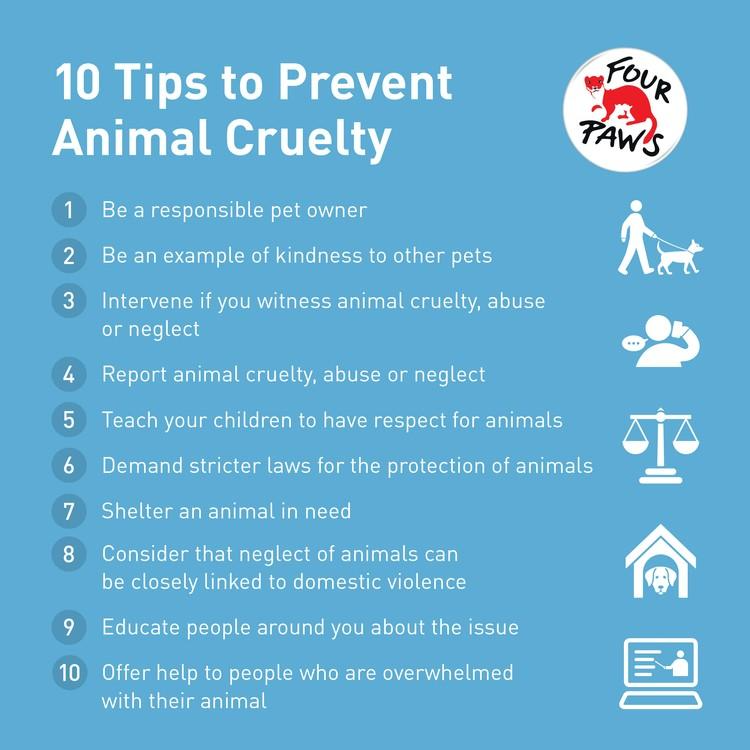Animal cruelty remains a pressing and pervasive issue that transcends borders and cultures, manifesting in various forms across communities. This troubling phenomenon prompts a call to action, urging individuals to engage in meaningful strategies that combat cruelty and advocate for the rights of animal inhabitants within their locales. Herein lies a comprehensive plan—one that encapsulates local action plans meant to galvanize change and foster compassion.
To initiate a robust movement against animal cruelty, it is imperative to cultivate awareness within the heart of the community. Education forms the cornerstone of such awareness. Consider implementing community workshops and seminars that elucidate the grim realities of animal abuse. By presenting statistical findings and harrowing anecdotes, these sessions can evoke empathy and galvanize attendees into action. However, it is equally crucial to embody a balanced dialogue; interspersing discussions of local resources, legislation, and avenues for advocacy creates a more holistic understanding.
Engaging local schools can exponentially amplify these educational efforts. Curricular integration that incorporates animal welfare topics into science or literature classes can instill values of empathy in students from a young age. Organizing art contests and essay competitions centered around the theme of animal rights can enliven student engagement and foster a culture of compassion amongst the youth. The use of visual storytelling can also be a powerful medium—students expressing their perspectives through various art forms can elicit a deeper emotional connection.
Beyond education, community outreach plays a critical role in combating animal cruelty. Formulating partnerships with local businesses, veterinary clinics, and animal shelters can create a network of support and resources. Hosting community events, such as adoption drives or fundraising fairs, can augment awareness while simultaneously providing tangible assistance to local animal shelters. This collaboration catalyzes a sense of responsibility amongst the populace, illuminating the communal responsibility to protect vulnerable animals.
Legislative advocacy represents another formidable method by which communities can confront animal cruelty. Mobilizing residents to voice their concerns to local lawmakers about inadequate animal welfare laws can create a palpable effect. Organizing letter-writing campaigns or petition drives can serve as essential tools in this pursuit, urging local governments to adopt more stringent regulations against animal abuse. It is crucial to remain informed about existing legislation to articulate needs effectively and highlight deficiencies in current laws.
The alarming incidence of abandoned animals necessitates tailored local solutions propelling a long-term strategy of community engagement. Establishing a local initiative to create a pet fostering program can provide temporary homes for neglected or abandoned animals. Mobilizing volunteers to care for these animals enables a dual benefit: reducing the immediate strain on animal shelters while simultaneously cultivating community investment in animal welfare. This alleviation of pressure on local shelters ensures they can focus on immediate care, rehabilitation, and rehoming of animals in need.
Furthermore, implementing a volunteer network that empowers residents to assist in routine shelter activities can foster a sense of community while addressing systemic issues of neglect. Encouraging individuals to partake in weekend shelter clean-ups, volunteer dog walking, or organizing training sessions can cement a lifelong commitment to animal welfare. These activities not only maintain the shelter but also build relationships between communities and the animals they aim to protect.
Awareness campaigns, alongside tangible support, offer a multipronged approach to confronting the reality of animal cruelty. The use of social media platforms to share stories of abused animals, promote adoption events, and spotlight local legislation can harness the collective power of community voices. Viral campaigns can reflect a community’s stance against abuse, urging others to take up their cause. The narrative can reveal the startling connection between neglect and violence, emphasizing that a unified front can foster significant systematic change.
While addressing animal cruelty in communities, it is essential to consider the underlying sociocultural factors that perpetuate this behavior. Often, cruelty can stem from ignorance, compounded by socioeconomic struggles faced within the community. Conducting research to understand these nuances can provide insights into crafting more effective educational programs and outreach efforts. Establish commonsense dialogues focusing on the correlation between mental health, poverty, and animal abuse can unveil the deeper societal issues at play.
The power of resilience and compassion can extend to inspiring activism at the regional and national levels. Local advocates can contribute to campaigns or organizations championing animal rights, allowing them to illuminate issues on a broader scale. By channeling their grassroots experiences into larger movements, local communities can influence national conversations about animal welfare, thereby catalyzing legislative changes that fortify protections against cruelty.
Ultimately, combating animal cruelty within communities necessitates a multifaceted and persistent effort. By fostering empathy through education, creation of supportive networks, legislative advocacy, and the promotion of volunteerism, individuals can incite systemic change. It is essential to recognize that addressing animal cruelty is not merely a local endeavor but a reflection of societal values. Only through collective action can communities hope to dismantle the structures that permit cruelty and advocate for the innocent lives that depend on human stewardship. Embrace this call to action; let it foster a compassionate legacy that reverberates through generations, ensuring that every creature—regardless of its form—receives the dignity it unequivocally deserves.








